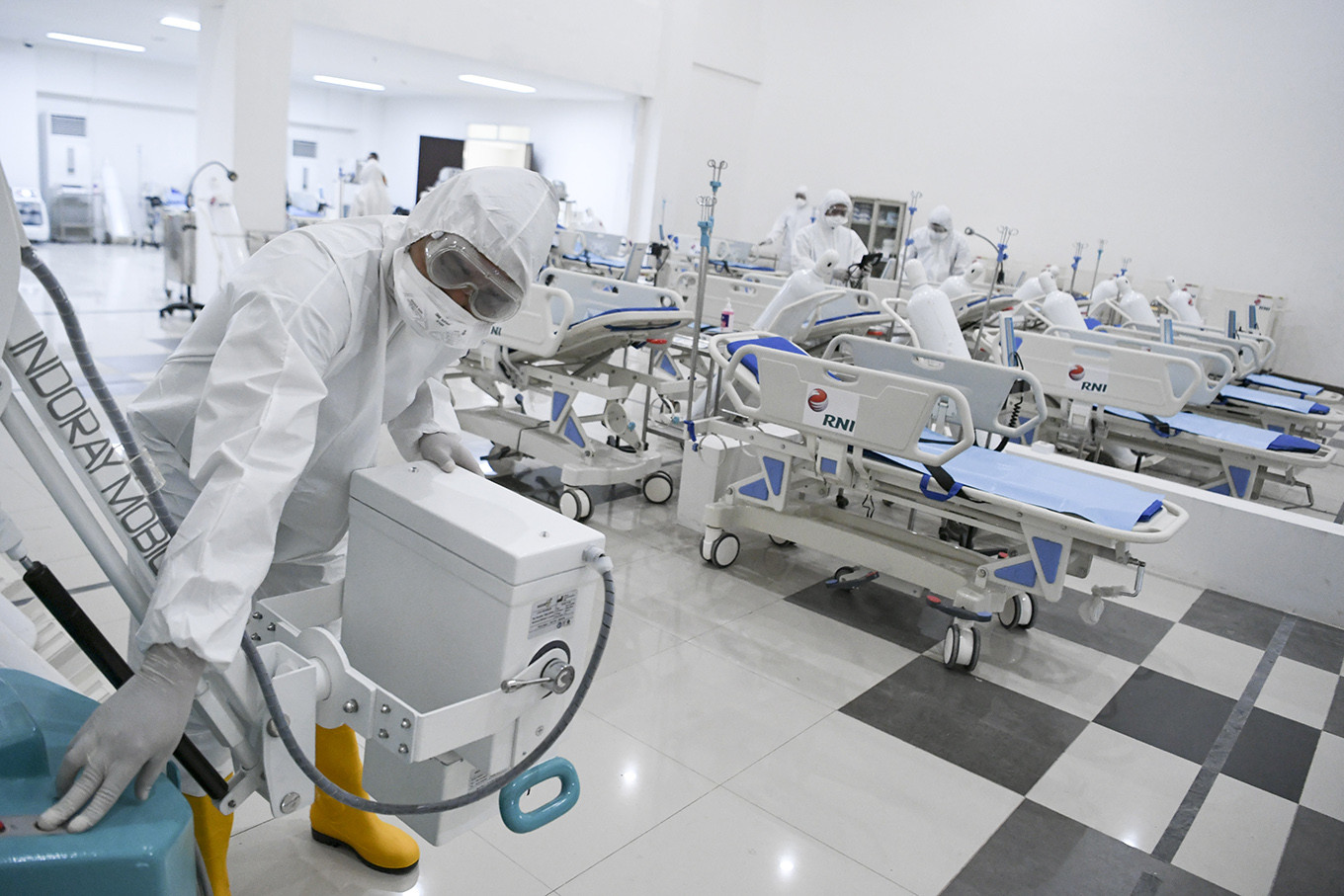Popular Reads
Top Results
Can't find what you're looking for?
View all search resultsPopular Reads
Top Results
Can't find what you're looking for?
View all search results2021 state budget to include extra spending for COVID-19 mitigation
The government has allocated extra spending of Rp 405.1 trillion (US$24.6 billion) for the handling of the COVID-19 pandemic.
Change text size
Gift Premium Articles
to Anyone
T
he government will allocate another financial package for the handling of the COVID-19 pandemic in the 2021 state budget, which is currently being drafted by the Finance Ministry.
Finance Ministry budgeting director general Askolani said on Tuesday that spending on the handling of COVID-19 next year would be the continuation of the government’s extra-spending allocated this year.
“The program to cope with the impact of COVID-19 is not only intended for this year but also for 2021 and 2022. So, more spending for COVID-19 will also be included in the 2021 state budget,” he said during a teleconference.
President Joko “Jokowi” Widodo issued a regulation in lieu of law (Perppu) on March 31 that would enable the government to widen the state budget deficit threshold to about 5 percent of the GDP from 3 percent at present. With the higher deficit threshold, the government could increase its expenditure to cope with the impacts of COVID-19.
As earlier reported, the government has allocated extra spending of Rp 405.1 trillion (US$24.6 billion) for the handling of the COVID-19 pandemic. Of the total funds, about Rp 75 trillion will be spent on the health sector, Rp 110 trillion on social protection, Rp 70 trillion on tax incentives and Rp 150 trillion on the economic recovery program.
The impacts of ongoing COVID-19 emergency measures, such as the partial lockdown imposed by the government to halt the disease’s spread, has crippled almost all sectors of the economy. In response, the government has cut down its GDP growth estimate to 2.3 percent this year, the lowest in 21 years, from the initial estimate of 5.3 percent. In the worst-case scenario, the country’s GDP growth may decline to 0.4 percent.
The government has also estimated that up to 3.78 million Indonesians would fall into poverty and 5.2 million lose their jobs.
The International Monetary Fund (IMF) projected that the country’s unemployment rate will rise to 7.5 percent this year from 5.3 percent in 2019, as the pandemic upends supply chains and forces companies to lay off employees, while also crushing demand for goods as consumers stay at home.
Given the situation, senior economist Chatib Basri said the government should design a different kind of social safety net that could protect those who were vulnerable to the impacts, particularly those in the lower to middle class.
“The government should not only focus on giving a social safety net to those below the poverty line. They should also focus on the people in the lower-middle class who lost their jobs because of the pandemic,” he said.
The Health Ministry has approved large-scale social restriction (PSBB) policies for at least 16 cities and regencies across Indonesia in order to curb the spread of the pneumonia-like illness. As a result, citizens are forced to stay at home, with some left without pay or even losing their jobs altogether.
He suggested that the government utilize its newly launched preemployment card program to determine which of those people needed a social safety net, as well as focus on disbursing cash transfers and other social aid to people in urban areas.
“Urban areas are feeling the hardest impact of this pandemic and around 55 percent of the population lives there, making food demand higher in those areas,” he said.
As the impact of the COVID-19 pandemic would be more severe than any other crisis that has hit Indonesia in the past, Chatib warned that the government should be more careful in stimulating the economy.










